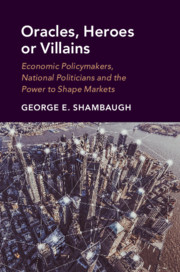Recent scholarship on Pakistan's political economy is in broad agreement about the need to revise extant formulations. The principal starting point for this revision is Hamza Alavi's (1972) notion of a powerful, ‘overdeveloped’ state apparatus bequeathed by colonialism, controlled by the powerful civil–military bureaucracy and supported by an entrenched landed elite.
The Alavian formulation, as Akhtar (2008) and Zaidi (2014, 2015) argue, does not hold true for twenty-first-century Pakistan in its original shape. Transformations such as deepening capitalism, increased urbanisation, and gradual, albeit often curtailed, democratisation during the last four decades have changed the terms of state–society engagement and, consequently, the nature of the political sphere itself. As a result, there is a growing realisation among authors contributing to this volume that the unilateral power of a cohesive and autonomous Pakistani state, as envisioned in both Alavi's writings and subsequent work that emerged in its long shadow, no longer holds true. In its stead has emerged a state internally fragmented along the civil–military axis, and consisting of new institutional pockets of authority in the form of parliament and the judiciary, both of which place sporadic checks on the military's control of the political sphere.
Alongside these changes internal to the formal state apparatus, the nature of authority and power has also transformed due to urbanisation and the opening up of spaces for political participation and contestation. In particular, the old landed elite, which according to Alavi was responsible for incorporating subaltern groups within the immediate postcolonial power dispensation, has seen its political monopoly diffused among a variety of propertied classes. In turn, it is these new classes that are now central to the reproduction of an unequal, or as Akhtar (2008:14) calls it, an ‘oligarchic’, structure of power in contemporary Pakistan.
The socialisation of power within an expanded dominant coalition, and the exercise of authority by ascendant societal fractions is the focus of this chapter. Specifically, this chapter brings attention to the political and social ascendancy of one particular group – the bazaar traders – in Pakistan's largest province, Punjab.
Before proceeding further, the particularities of Pakistan's capitalist transformation since Alavi's original theorisation, and the emergence and expansion of multiple classes, demands a clear delineation of the societal fraction that lies at the centre of this study.
